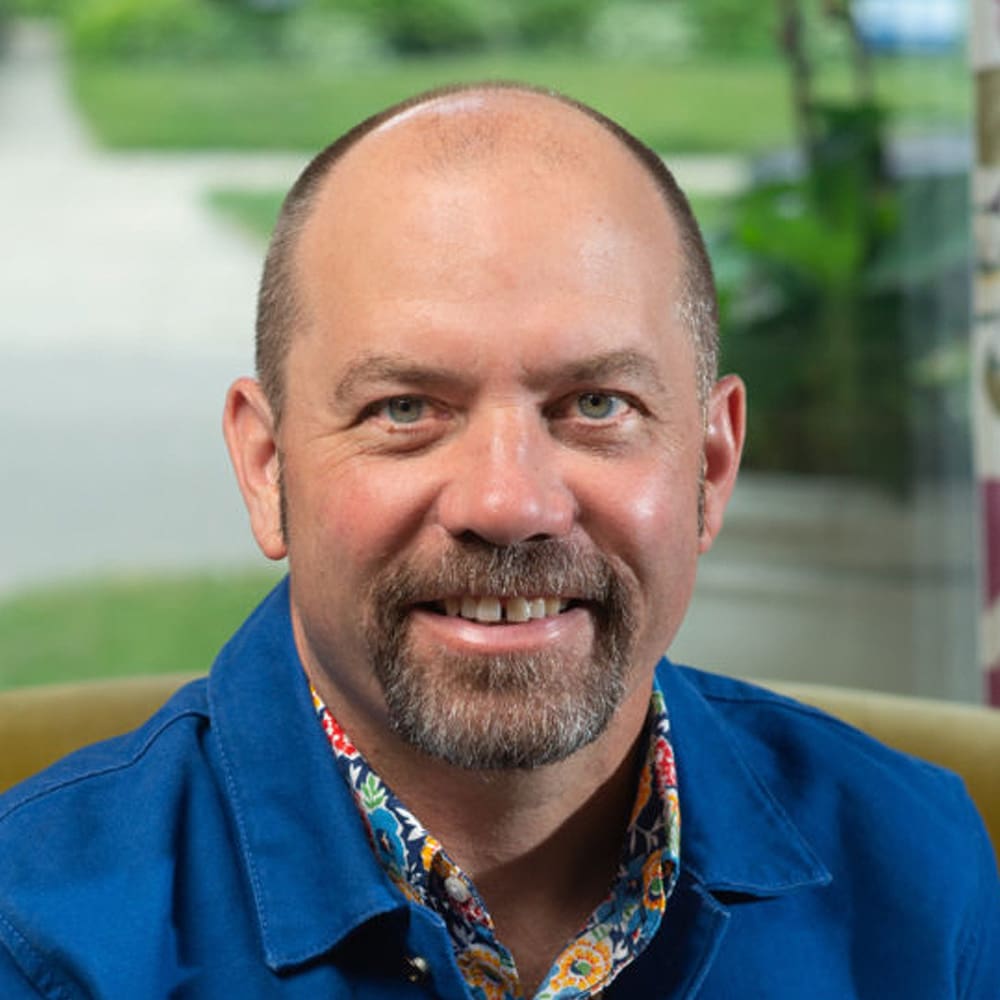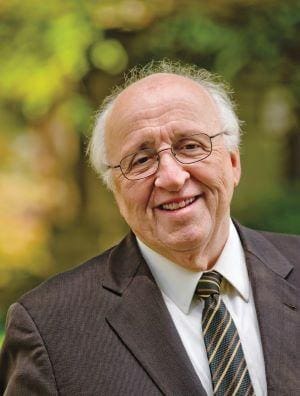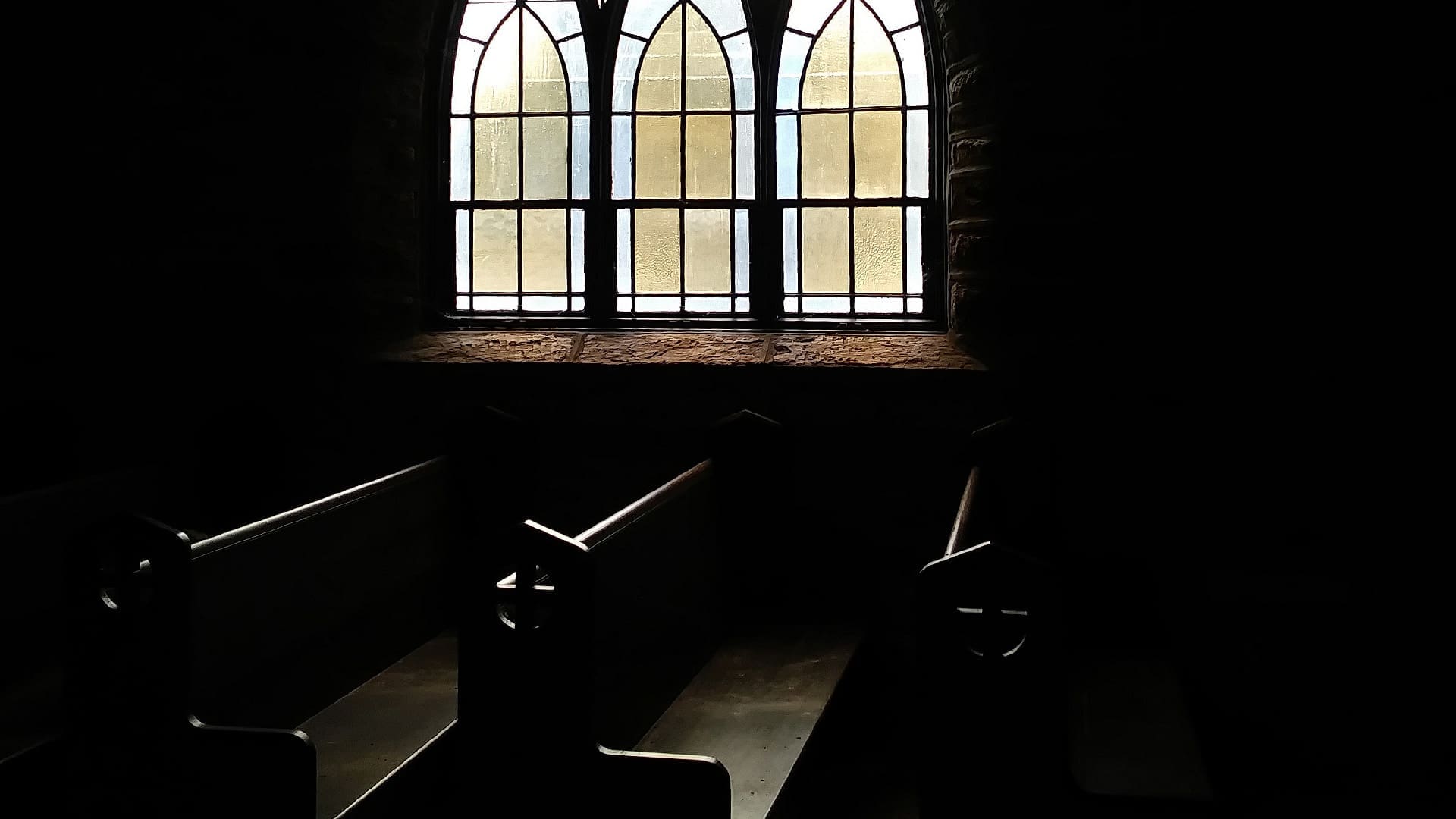This week we continue our conversation with Richard Mouw (click for part one), Distinguished Professor of Faith and Public Life at Fuller Seminary. If we were constructing a “Comment curriculum,” the bibliography would include a number of books by Mouw, including When the Kings Come Marching In (1983), Uncommon Decency: Christian Civility in an Uncivil World (1992), He Shines in All That’s Fair: Culture and Common Grace (2001), Abraham Kuyper: A Short and Personal Introduction (2011), and The Challenge of Cultural Discipleship (2011). We hope this conversation might prompt you to pick up one of those titles.
This week, our editor, Jamie Smith, picks up the conversation about Anabaptist and Reformed options in evangelical social ethics before considering how the Spirit is at work in our globalized world.
—The Editor
James K.A. Smith: In a way, I wonder if we’re in another moment where there’s a kind of Anabaptist backlash happening—though “backlash” isn’t quite the right word. But because a certain understanding of the Kuyperian and Reformed vision of cultural engagement just got identified with the Religious Right, and a new generation of young evangelicals said, “We want nothing to do with the religious right,” you can understand why they find themselves more captivated by the Anabaptist option.
Have you seen that in your own circles? You’re at the centre of evangelicalism here at Fuller Seminary. Is that an issue, a challenge?
Richard Mouw: Yeah. I think it’s an important challenge. You know John Howard Yoder and I, we had many, many debates including just going around to a bunch of Mennonite campuses and doing our roadshow together. We ended up writing that essay together in the Journal of Religious Ethics on the possibilities for evangelical ethics.
Our argument was that the real issues in evangelicalism were Reformed versus Anabaptist. And I think that that is a continuing thing: as evangelicals think about getting out of a world-flight, purely personal religion, they’re either going to move toward a more creational theology or they’re going to move for more robust Christology. Both of those, obviously, are important.
A lot of the new Anabaptist thing is represented by Stanley Hauerwas and Will Willimon’s Resident Aliens. They’ve been picked up by a number of really fine thinkers in the evangelical world and the ethics programs in a lot of colleges and seminaries of evangelicalism have been determined more by the Hauerwasian idea of community and character and virtue and the need for a community that nurtures those virtues and the kind of character that allows us to stand over against the prevailing principalities-and-powers-shaped culture that we’re a part of.
Right now, one of the problems in Neo-Calvinism is that we’ve never really developed an ethics. We have politics and we have a good economic theory and a lot of other things. But how do you live your life? We really don’t have the kind of Calvinist ethics that can stand alongside of a Hauerwasian ethics.
JS: In your book on Abraham Kuyper, A Short and Personal Introduction, one of the things you said we need to learn from that [Anabaptist] tradition is: Jesus matters. In the Reformed tradition, we also speak more about creation than we do cross, and we speak more about law than we do Jesus. But do you think there are resources indigenous to the Reformed tradition to do this—that this dialogue could bring out those aspects of the Reformed tradition?
RM: Yeah. I think it’s there in Bavinck, for example. Bavinck is one of the few people in our Neo-Calvinistic tradition who actually talks about the imitation of Christ. What does it mean to be like Jesus? We’ve always said, “If you want to be like Jesus, fulfill the law.” Jesus fulfilled the law and we can’t fulfill it by keeping it, but the third use of the law, it’s also said we need to conform to the law. To be like Jesus is to live in accordance with God’s commands.
Yes, I agree with all of that, but there’s something about the fact that we can look to Jesus. And it isn’t just in some formal sense fulfilling the law, but it’s seeing how he did it, how he reacted to people who picked corn on the Sabbath, those kinds of things.
JS: Yeah, I’m also encouraged that there’s a bit of a Bavinck renaissance happening right now that would just expand the resources we have available for thinking about these things.
RM: Yeah. Apparently, some people are working on retrieving some unpublished notes and lectures that Bavinck had given in ethics that I think we really need. Even in the Dooyeweerdian tradition, it was often hard to find a “sphere” for ethics.
JS: That’s true.
RM: You knew what sphere you were in when you were doing politics or law or other . . . but it wasn’t quite clear where ethics fit into things. So it ended up being very law-oriented. I’m all in favour of that; I think the lawful ordering of creation is a very profound insight of Neo-Calvinism. But if all we have is a lawful ordering of creation, I don’t think we’d always have very nice people. [Laughing]
JS: Right. Now this theme that creation has a lawful order to it, that’s an important insight because it also becomes a platform for collaboration with others. Is that right? So that’s actually a resource to help us think about the common good.
RM: Yeah, that’s right. And I think it’s very important today. One of the weaknesses of an Anabaptist ethic is that there isn’t really a lot of room for talking about commonness, about public vocabulary for talking about justice and peace and loving relationships; whereas in the Neo-Calvinist tradition, there’s already some impulse in that direction that we need to be working on.
JS: It’s interesting: I remember reading an article years ago by Willie Jennings in which he said if you’re actually going to deal with issues of race in our culture, you’d better be able to have a robust discussion of something in common. Otherwise, you’re going to end up with a segregated anthropology that can’t speak to that commonness.
RM: Exactly.
JS: One of the things you oversaw, I think, during your tenure as president of Fuller was a remarkable globalization of Fuller as an institution but also probably just in a season in which theological education was globalized, culture was globalized.
You’ve spent a lot of time in Asia and Korea and China. How does the “Christianity and culture” conversation get exported? Are our categories hopelessly Euro-centric and American? Or does this have legs in very different cultures?
RM: One of the exciting shifts has been away from talking in very simple terms about Christ and culture to talking about Christ and about cultures. I think that’s a very important focus.
I think one of the great breakthroughs here has been in that branch of theology that has flourished in recent years (and I think Fuller Seminary is partly responsible for it by having the first graduate school of mission) that we call today missiology. Within missiology, there are very important emphases on contextualization—that the gospel has to address itself through different cultural contexts. I think that if you’re trying to bring the gospel to an animist culture, that’s very different than bring the gospel to Cambridge, Massachusetts. If you’re going to bring the gospel to the slums of Haiti, to Port-au-Prince, Haiti, that’s very different than bringing the gospel to Orange County in California. That takes sensitivity to “what is good news?” in this or that cultural context. Missiology, I think, has given us a lot of levers to pull and pegs to hang things on.
Frankly I find that Neo-Calvinism is very helpful in that because already in Bavinck and in Kuyper you get a very strong emphasis on the diversity of cultures. Bavinck has this wonderful line where he says that each individual is created in the image of God, but there’s also a collective image and that the image of God is distributed over the whole human race and that different ethnicities and different races develop different aspects of the image of God.
When tribes and tongues and nations of the earth, as redeemed people, enter into the New Jerusalem in the end times, it is the gathering in of the image of God. We’re going to see the image of God in its fullness. To me, that’s a powerful thing because it allows us to be sensitive and gives us not just the freedom, but also gives us the obligation to think, when I’m going into China, “What is the Spirit of the Living God doing in China?”
JS: Yeah, so it primes you to look for what the Spirit is already doing in that culture. You don’t come to it as if it’s characterized by an essential lack.
RM: This ties in with a Pentecostal scholar like Amos Yong who’s working on a new pneumatology of world religions, of diverse cultures. Missionaries have always sensed this in an intuitive way, that when they went into an “unreached people” context, they often had a sense that people had been prepared for this.
JS: You can read the Book of Acts in exactly that way, too, right?
RM: Exactly.
JS: This reminds of what Vincent Bacote was doing in his book The Spirit in Public Theology, which was giving the pneumatological girding for a theology of common grace, right? That the Spirit is at work already there.
RM: Kuyper wrote a whole book on the Holy Spirit. In there, he says that the Spirit is preparing the creation for something new. I don’t think we’ve done enough with Pentecost. I don’t have to tell you.
I find that many of my Pentecostal friends, having heard a much too individualistic understanding of the Spirit—which is a good thing; the spirit does work with individuals—but that sense that when we go out into the broader culture, we’re going out to discern what the Spirit is already doing, is new to them.
JS: Yes. Amos has always been at the lead of thinking this way. In my experience in the Pentecostal tradition, there’s also a tendency to identify the Spirit’s work with what’s exceptional and not to recognize that that same Spirit is the one who keeps the sun in its orbit—that the Spirit is also nourishing that ordered, law-like feature of creation as well, and of cultures, of cultural order.
So maybe part of the discernment process is asking, “What has the Spirit been doing in preserving and sustaining, nourishing this culture, not just the miraculous surprises?”
RM: That’s good. You know, Calvin’s image is creation as the theatre of God’s glory. Maybe we need to think of the Spirit as the stage manager.
JS: Yes! That’s a good point. We love to see the spectacular that’s happening on the stage, but the Spirit is also at work in the set. Yeah, the stage manager is a great metaphor for that.
RM: Al Wolters, a couple of years ago in a wonderful piece that he did reflecting on his years of wonderful leadership and formative thinking in the Neo-Calvinist movement, said that one of our problems in Neo-Calvinism is the lack of real spirituality.
We find it in Kuyper. After all, he did write a whole 700 pages on what it means To Be Near Unto God. But it’s often been ignored. It’s part of Kuyper that we’ve sort of been in denial about many of us. Al [Wolters] said the Neo-Calvinist movement needs to learn from Pentecostalism, needs to learn from traditional, spiritual formation, spiritual practices, and the like. As we think about a revitalization of a Neo-, maybe even a Neo-Neo-Calvinism, in the twenty-first century, we’re not just trying to spread Calvinism, but we’re also trying to learn from other traditions.
That’s why I’m excited about being at Fuller Seminary. I see myself as certainly a representative of Neo-Calvinism. At the same time, I was given a wonderful opportunity by God to be in a place where I can learn so much from so many different traditions.
JS: I’ve long appreciated that, not only have you written and tried to convince people to embrace the whole Kuyper, you embody it—both that rigorous cultural, intellectual vision, but also the piety. You love Jesus and I think it’s a wonderful model.
RM: I’m just learning from people like you, Jamie.
JS: (Laughing) Thank you so much for making the time. I really appreciate it.






